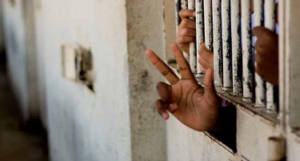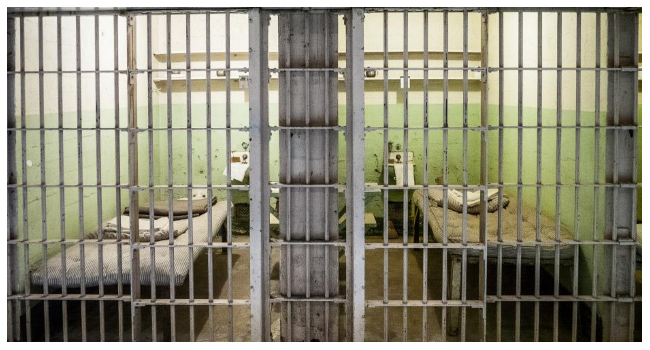The Federal Government of Nigeria has recently taken a significant step toward improving the welfare of inmates by approving a 50 percent increase in the feeding allowance for individuals held in the country’s custodial centers. This new adjustment, which is slated to take effect from August 2024, comes as a response to the increasing cost of food and represents the first phase of what could be a broader overhaul in the management of inmate welfare. The announcement was made during the Strategic Communications Interagency Policy Committee’s monthly press briefing in Abuja, where officials highlighted the importance of this increment and its potential impact on the overall reformation and rehabilitation efforts within the Nigerian correctional system.
Umar Abubakar, the spokesperson for the Nigeria Correctional Service (NCoS), provided key insights into the reasons behind the increase, pointing to the economic realities of rising food prices that have made it increasingly difficult to maintain adequate standards of feeding within the custodial facilities. Abubakar explained that this adjustment is a necessary response to ensure that the basic nutritional needs of inmates are met, thereby supporting the broader objective of humane treatment and rehabilitation.
“The viral video circulating on social media is not a true reflection of the Nigeria Correctional Service or its mandate concerning the reformation and rehabilitation of inmates,” Abubakar said, referring to a recent video from a correctional center in Calabar, Cross River State, where inmates complained about insufficient food. He emphasized that the service is taking the concerns seriously and has launched a full investigation into the claims made in the video.
 Abubakar noted that the NCoS remains committed to its mandate of rehabilitating inmates and helping them reintegrate into society as law-abiding citizens. Since the correctional service was renamed to reflect its focus on rehabilitation, Abubakar mentioned that significant progress has been made in creating an environment conducive to reform. “Let me make it known that since the inception of the change in name, substantial strides have been taken to reform individuals in our custody,” he added.
Abubakar noted that the NCoS remains committed to its mandate of rehabilitating inmates and helping them reintegrate into society as law-abiding citizens. Since the correctional service was renamed to reflect its focus on rehabilitation, Abubakar mentioned that significant progress has been made in creating an environment conducive to reform. “Let me make it known that since the inception of the change in name, substantial strides have been taken to reform individuals in our custody,” he added.
One of the key outcomes of this reformatory focus is the notable number of inmates currently pursuing higher education. The NCoS has facilitated opportunities for over 1,000 inmates to enroll in various degree programs, while others have pursued diploma and postgraduate studies. Abubakar disclosed that 282 inmates are actively working towards their diplomas and master’s degrees, and impressively, six are engaged in doctoral studies, with three of them already in the process of writing their PhD theses.
He elaborated further on the service’s commitment to inmate education, stating, “We are committed to ensuring public safety through our reformatory activities, and part of that effort is providing inmates with access to education. This helps change their mindset and behavior and prepares them for re-entry into society.” The initiative is part of a broader strategy aimed at reducing recidivism by equipping inmates with the tools they need to succeed after their release. Abubakar emphasized that these educational opportunities are made possible through the creation of a peaceful and supportive environment within the correctional centers, where inmates can focus on learning skills and obtaining qualifications that will serve them well once they have served their sentences.
The increase in the feeding allowance is expected to further support this reformation process by ensuring that inmates receive the nourishment they need to engage fully in educational and vocational training programs. Abubakar pointed out that adequate feeding is not just a matter of welfare but is also crucial for maintaining the physical and mental well-being of the inmates, which directly influences their ability to participate in rehabilitation efforts.
The recent viral video that sparked public concern over the conditions in Nigerian correctional centers also drew attention to the systemic challenges faced by the NCoS. While the video showcased complaints from inmates about poor feeding conditions, Abubakar was quick to clarify that the video does not represent the current state of affairs within the system as a whole. He acknowledged that while there may be isolated issues, the service is working diligently to address them. The investigation into the video, he said, will provide further clarity, but in the meantime, the service is taking proactive steps to improve conditions across the board, beginning with the increase in feeding allowances.
The feeding allowance increase is a reflection of the Federal Government’s recognition of the broader socio-economic challenges facing the country, including inflation and rising food prices, which have impacted even the correctional system. This development aligns with the government’s efforts to enhance the overall management of Nigeria’s correctional facilities, ensuring that inmates are treated with dignity while they undergo rehabilitation. Abubakar stressed that the NCoS remains committed to its core values of reforming inmates through structured educational, vocational, and psychological support systems that enable them to lead better lives upon re-entry into society.
In addition to educational programs, the NCoS has introduced a range of skill acquisition and vocational training programs aimed at equipping inmates with marketable skills that they can use to support themselves once they are released. These programs include carpentry, tailoring, plumbing, and agriculture, among others, and have been designed to provide inmates with practical skills that will ease their transition back into society. Abubakar noted that many inmates who have participated in these programs have gone on to establish their own businesses upon their release, significantly reducing the likelihood of them reoffending.
Despite these positive developments, Abubakar admitted that the correctional system still faces significant challenges. Overcrowding remains a major issue in many custodial centers, as does the need for additional funding to support the wide range of programs now being offered. However, the NCoS is optimistic that the increase in feeding allowances is just the first of many improvements that will be made to the system in the coming months.
The Federal Government’s decision to increase the feeding allowance for inmates by 50 percent is a clear indication of its commitment to improving the welfare of those in custody. This initiative, combined with the ongoing efforts to provide education and vocational training to inmates, marks a significant step forward in the transformation of Nigeria’s correctional system. As the NCoS continues its investigation into the viral video, it remains focused on its broader mission of reforming inmates and ensuring public safety through effective rehabilitation and reintegration programs.




